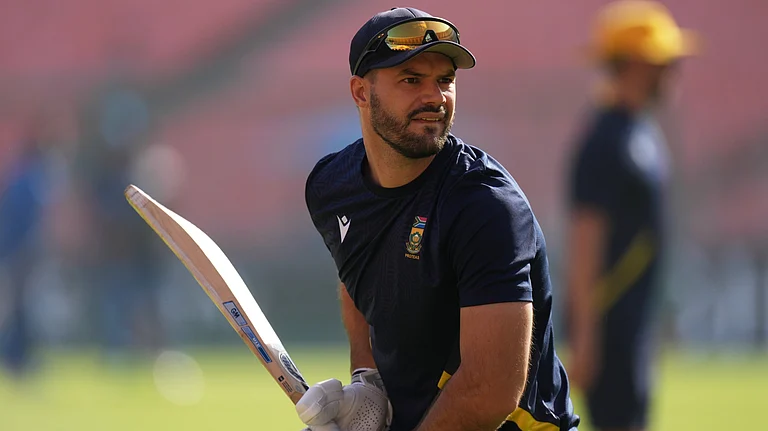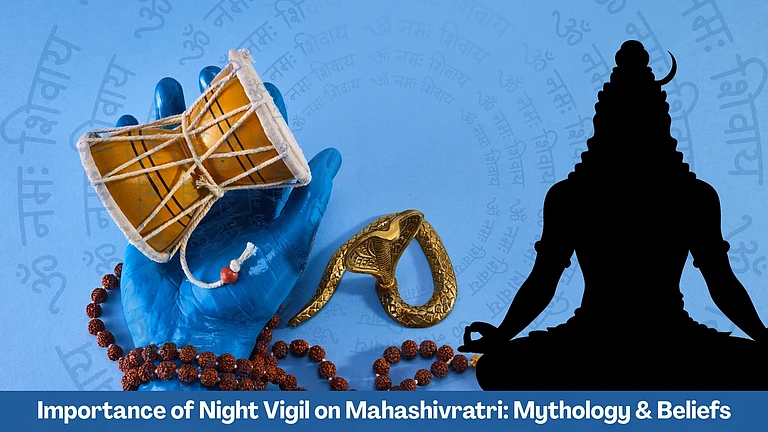WHILE Delhi boy Rakesh Saxena sits pretty in Vancouver, Canada, fighting—successfully till now—a bid to extradite him to Bangkok. How did an Indian—alumnus of Delhi's elite St Columba's School and St Stephen's College—manage to become Thailand's most wanted man? The Thai authorities say Saxena is one of the masterminds of systematic frauds totalling $2.4 billion that crushed the Bangkok Bank of Commerce (BBC), sent the Thai economy into a tailspin and the baht into decline, brought down the Thai government, and triggered off the Southeast Asian economic meltdown.
Not satisfied with that, in a bid to build a mining empire in the war-wracked West African country of Sierra Leone, Saxena allegedly used British mercenaries last year to topple the government and make Ahmad Tejan Kabbah president. In exchange for major diamond and gold mining concessions (see box).
In Southeast Asia, he is seen as a far more dangerous man than English rogue trader Nick Leeson who singlehandedly brought down the stodgy and conservative British bank Barings. The Thai authorities have requested the Canadians to extradite him, but last month, the British Columbia Supreme Court (equivalent to an Indian state high court) released him from prison, and allowed him to go home—a plush $500,000 Vancouver condominium—and continue his battle from there.
The stocky, fair-skinned 46-year-old highroller, who fancies tinted glasses, flashy suspenders and designer ties, has won a reprieve. But not for long, say analysts in Bangkok. Someday soon, they feel, he will be brought back to Thailand to face the charges he most dreads. He even fears he would be murdered by the Thais.
Still, his friends in Mumbai and Bangkok speak of him with admiration. "He was a brilliant foreign exchange trader, a real risk taker," says one. Saxena's childhood gave no indication of what was coming. He was raised in a home full of books, as his mother Amrit Sarup was a well-known academic specialising in law. In the late '80s, she worked in London's Commonwealth Secretariat.
His academic career was brilliant. He did very well in his examinations from St Columba's, which ensured that coveted admission in St Stephen's College. At university, he developed strong Marxist leanings and got involved in student politics. But a career in academics, or in the communist party, was not his cup of tea, as he was drawn to the world of high-stakes finance.
After his MA in English in 1974, Saxena moved to Kochi when he found his first job in a stock brokerage. He worked as a broker, but he had to leave Kochi after he got involved in a stockmarket controversy, according to his friends in Mumbai. The Kochi Stock Exchange has now forgotten the details, though its records show that Saxena auctioned off his membership at the stock exchange in 1993.
After quitting Kochi, Saxena surfaced in the then-Thapar-owned Oriental Bank of Commerce (OBC) in Delhi as a foreign currency trader. At the time, the OBC had a monthly trading turnover of under $5 million, but this was too little for the ambitious Saxena. He started doing trades of $50 million a day, sources said.
At the OBC, he took daring foreign currency positions in pounds sterling that were way beyond his authorised limit. One particular trade apparently ballooned into a forward position of 150 million pounds, which resulted in the near-collapse of OBC. Says a Mumbai trader: "As a result of this, the OBC was nationalised. He was really, really over-trading."
SAXENA now had to seek new pastures abroad. Leaving his wife and daughter behind in Delhi, he appeared in Hong Kong in the early 1980s. He found a job as a foreign exchange trader with GSP Finance, where he worked for about a year, and found a better job as a commodities and foreign exchange trader with Wocom Commodities, owned by the Wing-on Group. But he left suddenly after about two years.
In Hong Kong, he met a Thai girl, Suwa-nna Hanvorakiat, working in an insurance company. They lived together in a rented apartment on Conduit Road. But even as a salaried worker, Saxena tended to overspend. The now-defunct—and notorious—Bank of Credit and Commerce had given him an overdraft of about HK$30,000, which he never repaid. The bank even went to the extent of serving him court notices at his mother's house in London.
Eventually, he ended up in Thailand in 1985, where he worked for a while as an advisor to Thai finance companies and banks. "He had this habit of sitting in the evening drinking with people, and he would tell them how much money he'd made for them," said a banker who knew him intimately.
He raised his profile by writing a financial column for the leading English language daily Bangkok Post. The column had its spin-offs: he gained stature as a seasoned financial commentator. "He wrote intelligently. His grasp of foreign exchange was very good. He was a strategist who could win people over with his ideas," says a Thai investor who used to read his columns.
He is still considered a legend among young business reporters at Bangkok Post, one of whom said: "The guy was brilliant. You have to give him that. How he rose from a columnist to become an advisor to a major Thai bank, and the fantastic deals he did!!" A Thai banker he lunched with in '89 says this of him: "Rakesh boasted, 'I trade in millions, and I make a lot of money. I am very good at gut feelings.'"
He certainly was. He smelt out the big deals, earned big bucks, and lived luxuriously in a penthouse apartment in Bangkok's President Park condo. Acquaintances remember his enormous capacity for liquor and a complete immunity against hangovers, drinking heavily and partying all night in the company of his clients and business associates. In 1995, he moved out of his home with Suwanna, and began living in five-star hotels. But as he was whopping it up in Bangkok's hot spots, overseeing orgies of epic proportion, he was creating a cleverly-conceived international web of companies in the tax havens of the Cayman Islands and British Virgin Islands, and across Europe and North America.
Saxena's fortunes really changed when he met and befriended Krirk-kiat Jalinchandra, a former Thai central bank official, who was a top executive at the privately-owned BBC. In 1987, Krirk-kiat was appointed the president of the BBC, and he came to rely heavily on Saxena for financial advice. Soon, the man from Delhi had been appointed as treasury advisor to the BBC.
Thailand in the late '80s and early '90s was riding a boom that looked never-ending at that time. As crony capitalism and insider trading flourished, as the real estate, stockmarket and banking sectors fed on one another to create an economy on amphetamine, Saxena gorged himself. But then the amphetamine began wearing off.
Saxena's modus operandi was to seek out companies that were listed on the Stock Exchange of Thailand, but were dormant. He would mount a hostile attack to take them over, beef up their balancesheets by sacking assets and staff, and then sell them at a profit. At times, these companies were taken over by using funds drawn from the BBC, against little or no collateral, simply based on his cosy relations with Krirk-kiat. Quite a few times, Saxena forgot to pay the loans back.
But all this was beginning to show on the BBC's balancesheets. The BBC's exposure to bad loans was growing alarmingly, and the Thai government was beginning to worry. In March 1995, a Cayman Islands-based shell company owned by Saxena and associates took a $65-million loan from the BBC to buy three telecom companies. The idea was to buy the companies, merge them, sell them for a profit and pay back the loan. Till then, the BBC would hold the shares of the three companies as collateral. Business as usual, except that Saxena and pals had already bought the three companies for $50 million. They gave no shares to the BBC to hold as collateral, sold off the merged entity for $75 million, and never paid back the loan.
Four months later, Saxena pulled off another audacious fraud. Working in collusion with a Russian businessman called Oleg Boiko, who owned the National Credit Bank of Moscow (NCBM), he took a $80-million loan from the BBC against bills of exchange guaranteed by the NCBM in the name of Essex Corporate Holding and Finance, a shell company owned by Saxena. The bills of exchange were worthless, the NCBM has closed down, the loan hasn't been paid back.
Saxena fled to Vancouver in May 1996, the day after the central bank took over the scandal-ridden BBC. Krirk-kiat was sacked (and later arrested; he is currently out on bail), and the bank's assets were frozen.
In Canada, Saxena continued living extravagantly, and taking over companies in North America, till the Thai authorities launched criminal investigations in which Saxena, Krirk-kiat, and their associates were accused of engineering bogus loans totalling $2.4 billion. Saxena was arrested in Canada in July 1996, and released on bail. By this time, he had made a powerful enemy in Adnan Khashoggi, who was livid that the Thai authorities had taken control of his shares in Thai companies, that were used as collateral for loans Khashoggi took from the BBC.
kHASHOGGI was accused in the BBC saga of being involved with Saxena and Krirk-kiat in a conspiracy to take back shares in a Thai company, Jalaprathan Cement, which they had put up as collateral for a BBC loan. The defendants said they would sell the two million shares worth 262 million baht to pay back the loan, but never did.
Last year, the BBC, under new management, sold stock owned by Khashoggi in cooking oil producer Morakot Industry. Following the sale, Khashoggi's debt to the BBC shrank to about 5 billion baht ($125 million). BBC officials said they would negotiate with Khashoggi to collect the remaining loan.
In the meantime, the Indian government had begun investigating the source of godman Chandraswami's enormous wealth. As it went through the list of donations to Chandra-swami's Vishwa Dharmayatan Trust, a Bangkok Bank of Commerce cheque from Rakesh Saxena for Rs 78.7 lakh popped up. The catch was that this donation did not appear in Saxena's income tax filings in Thailand. The Indian government has now asked for the Canadian Revenue Department's help in interrogating Saxena, since it suspects that Saxena was simply laundering money for the godman.
Saxena was re-arrested in Canada in January 1998 just as he was planning to jump bail, and flee the country on a fake passport bearing the name of a Bosnian who had been killed in the Serbian conflict. And when his ex-accountant Les Hammond, who had intimate knowledge of all the shady deals, decided to turn approver in exchange for charges against him being dropped, Saxena's world finally started coming apart.
Over in Bangkok, the government was forced to bail out the BBC in what was decried as a national shame because the state had to pump in more than $7 billion to prop up the parlous bank. The burden on the country was equal to more than 17 per cent of the 1998 budget of 1 trillion baht, or 3.5 per cent of the country's gross domestic product.
Saxena and his associates face charges of embezzling $1.9 billion in 21 cases. In April, he told his Canadian lawyer Winton Derby that he feared he would be murdered if he returned to Bangkok. But Thai police chief Pracha Promonok hit back saying that Saxena was making an empty claim, and that he should return to Bangkok to face the charges.
The connoisseur of high finance, who sought release for his growing stress by partying with a vengeance in Bangkok's girlie bars, now seeks escape from the accumulated karma of his past.


























